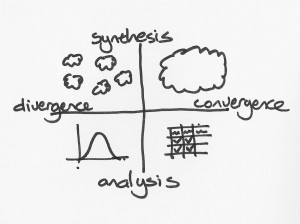How to Get Two More Years of Brain Health
 Here on the Next Brain Blog I have posted several times on the value of taking a walk for stimulating thinking, lowering stress and forestalling the effects of age-related cognitive decline. Even small amounts of walking can produce dramatic results. For example, check out the new research from University of Illinois at Urbana-Champaign that found:
Here on the Next Brain Blog I have posted several times on the value of taking a walk for stimulating thinking, lowering stress and forestalling the effects of age-related cognitive decline. Even small amounts of walking can produce dramatic results. For example, check out the new research from University of Illinois at Urbana-Champaign that found:
Walking 40 minutes three times a week on a regular basis increases the size of your hippocampus (area of brain where memories form) and effectively slows normal cognitive decline by two years in adults ages 50 to 80 years.
This is a powerful finding because normally our hippocampus decreases in volume 1-2% per year as we age.
Categories: Cognitive Decline, Lifestyle, Memory and Learning, Older Adult Tags: exercise
Warm Up Your Mood to Boost Creativity
 Warming up is clearly important for safety and high performance in physical activities and competitive sports. The same is true for mental activity and cognitive sports.
Warming up is clearly important for safety and high performance in physical activities and competitive sports. The same is true for mental activity and cognitive sports.
In an earlier post we discussed how having a friendly social conversation for 10 minutes to warm up your brain will improve cognitive performance. Now CNN Health reports on two recent studies that show humor or positive mood can improve creativity and puzzle solving ability.
More specifically, one study found that watching YouTube videos that put you in a good mode (watching a happy baby) increases your ability to learn a rule to categorize a problem.
This suggests simple mood elevating techniques can warm up your brain and improve cognitive performance. Need to be creative? Take time out to laugh.
Source: Happy Baby Image
Categories: Lifestyle, Problem Solving Tags: creativity
Does Emotional Intelligence Peak in Your 60s?
 Emotional intelligence is our ability to spot, manage and generate emotions in ourselves and others. It appears to correlate better to life success than IQ. Emotional intelligence is not taught in school, it is learned (by some) through life experience. So it should be no surprise that it should improve as we age.
Emotional intelligence is our ability to spot, manage and generate emotions in ourselves and others. It appears to correlate better to life success than IQ. Emotional intelligence is not taught in school, it is learned (by some) through life experience. So it should be no surprise that it should improve as we age.
According to recent research from the University of California at Berkley, some aspects of emotional intelligence appear to peak in our 60s. These include:
- Effective use of positive reappraisal (seeing the bright side of things) to reinterpret negative situations in a positive way.
- Sensitivity to sadness or the ability to empathize with those feeling sad.
These are important findings as they help to further dispel the myth of universal cognitive decline with age. Understanding which aspects of cognitive performance naturally improve as we age should shape our approach to brain fitness.
Interested to hear from readers that have noticed improvements in Emotional Intelligence in older adults.
Categories: IQ and EQ, Lifestyle, Manage Emotions, Older Adult Tags: emotion, EQ
Warming Up Your Brain Improves Performance
 Want to improve your ability to solve a problem, take a test, deliver a presentation or perform some other cognitive task? Make sure you stimulate your brain by having a friendly social conversation before taking on the task. According to researchers at the University of Michigan, this friendly-chat brain boosting technique works well because:
Want to improve your ability to solve a problem, take a test, deliver a presentation or perform some other cognitive task? Make sure you stimulate your brain by having a friendly social conversation before taking on the task. According to researchers at the University of Michigan, this friendly-chat brain boosting technique works well because:
“… some social interactions induce people to try to read others’ minds and take their perspectives on things,” Ybarra said.”
A 10-minute “get to know you” conversation produces the effect. The researchers warn that the effect does not work if the conversation has a competitive tone.
Interested to hear from readers on what else we can do to “warm up” our brains before a cognitive performance.
Categories: Lifestyle, Memory and Learning, Problem Solving Tags:
Does Teasing Your Brain Make it Stronger?
 There is some evidence that we can enhance our brain function and cognitive performance by regularly solving puzzles, problems, riddles or games that tease our brain. Teasing means presenting some enjoyable mental challenge that is not too easy but not too hard.
There is some evidence that we can enhance our brain function and cognitive performance by regularly solving puzzles, problems, riddles or games that tease our brain. Teasing means presenting some enjoyable mental challenge that is not too easy but not too hard.
Classic crossword puzzles and the more recent Sudoka number-pattern puzzles are popular brain teasers. Some people love them others find them boring.
The key is to find the type of brain teaser you enjoy and enjoy it regularly.
If you have not discovered your inner brain teaser, or are shopping for new ones (always a good idea), check out Top 10 Brain Teasers and Games for Adults and Kids from Sharpbrains. You are sure to find something you like. If you do, the next challenge is find a steady supply of similar challenges.
Very interested to hear from readers that enjoy brain teasers. How do they enhance cognitive function?
Image Source: Fanpop!
Categories: Cognitive Decline, Lifestyle, Mental Focus, Perception, Problem Solving Tags: games
Reclaim Your Divergent Thinking Talents
Many older adults worry about memory loss. This is a serious issue especially if it leads to dementia and the inability to do the activities of daily living.
But just as serious, and more so in many ways, is the dramatic loss of divergent thinking skills in young children.
One long-term study found that in a group of 1600 children those that ranked tops in divergent thinking dropped dramatically with age. Specifically, those achieving a top score for divergent thinking went from 98% in kindergarten to 32% five years later to just 10% when they reached early teens. Divergent thinking is a natural talent and is rapidly educated and socialized away.
 Divergent thinking is the capacity to see multiple options, alternatives or possibilities. The goal is not to find a solution but instead find an enormous range of potential and therefore very different solutions. For example, how many interesting uses can you find for a rubber band? On average people might find 10-20, genius level performance would generate in excess of 150. The trick to generating many more options is to begin to relax assumptions about what a rubber band is. What if it was a mile long? Of course, some would claim that is cheating, as we have all been taught to do. Just as there is one right answer so why worry about so many?
Divergent thinking is the capacity to see multiple options, alternatives or possibilities. The goal is not to find a solution but instead find an enormous range of potential and therefore very different solutions. For example, how many interesting uses can you find for a rubber band? On average people might find 10-20, genius level performance would generate in excess of 150. The trick to generating many more options is to begin to relax assumptions about what a rubber band is. What if it was a mile long? Of course, some would claim that is cheating, as we have all been taught to do. Just as there is one right answer so why worry about so many?
The question is how can we reclaim our genius level of performance in divergent thinking? How can we then channel it into creative expression and break-through problem solving?
Mind mapping, journaling and traditional brainstorming are techniques that are typically offered to those looking to build divergent thinking skills.
Start simple with brainstorming by yourself but apply it to a practical problem that means something to your right now.
Here is what you do. Let’s say you are buying a new computer. Use divergent thinking to decide what to do with the old one. Set a time limit (say 20 minutes at most), and list as many ideas as you can. Best to write them down. Go for the largest number, don’t worry if they are good/bad, look at how you can combine ideas and allow for the weird and strange. Have fun with it. Open up your mental jets.
 With continued practice your mind will get use to this mode of thinking again and you will start to reclaim your divergent thinking talent. Consider using mind mapping or some other way of seeing how your ideas related to each other visually. Include others. Let alternatives bubble up all day or all week and capture them in a journal as you go. Soon your thinking will diverge far and fast when you want it to. The payoff? Good ideas that you would have normally never even considered.
With continued practice your mind will get use to this mode of thinking again and you will start to reclaim your divergent thinking talent. Consider using mind mapping or some other way of seeing how your ideas related to each other visually. Include others. Let alternatives bubble up all day or all week and capture them in a journal as you go. Soon your thinking will diverge far and fast when you want it to. The payoff? Good ideas that you would have normally never even considered.
Interested to hear form readers that practice divergent thinking. What techniques do you use?
Categories: Lifestyle, Problem Solving, Training Tags: creativity, processing speed
Mom’s Brain Bulks Up After Giving Birth
 Exciting new research suggests that a mother’s brain undergoes significant growth (actually gets larger) in several areas just after birth. Additional brain volume in turn leads to improved cognitive performance. Specifically, hormonal changes seem to trigger improvements in maternal motivation, emotional processing, sensory integration and reasoning and judgment.
Exciting new research suggests that a mother’s brain undergoes significant growth (actually gets larger) in several areas just after birth. Additional brain volume in turn leads to improved cognitive performance. Specifically, hormonal changes seem to trigger improvements in maternal motivation, emotional processing, sensory integration and reasoning and judgment.
The research is reported in the journal Behavioral Neuroscience and summarized nicely in Science Daily.
“In particular, the mothers who most enthusiastically rated their babies as special, beautiful, ideal, perfect and so on were significantly more likely to develop bigger mid-brains than the less awestruck mothers in key areas linked to maternal motivation, rewards and the regulation of emotions.”
Although motherhood is not a strategy for improving brain function and cognitive performance it does seem to have that effect. Especially for those that truly cherish what they have. This is a fry cry from some commonly held beliefs that motherhood can “turn your brain into mush”. It may seem that way with the all additional responsibilities, learning that must be done and the new things to remember but that is how growth normally feels.
Just as the aging mind ripens in many ways with time, taking on the responsibilities of motherhood appears to push the brain to a whole new level of performance.
Categories: Cognitive Development, Lifestyle, Manage Emotions, Parent Tags:
Walking 6 Miles a Week Reduces Chances of Memory Loss By Half
 We all know exercise is a good for the brain. But what types should I do, how much and what benefits can I expect? We try and answer these questions in the Next Brain Blog by looking at the latest scientific studies.
We all know exercise is a good for the brain. But what types should I do, how much and what benefits can I expect? We try and answer these questions in the Next Brain Blog by looking at the latest scientific studies.
Take for example the study published by Kirk I. Erickson in the October 13th issue of Neurology Online and reported by Web MD as Walking May Ward Off Memory Loss. The study found walking 72 blocks per week or approximately 6-9 miles early in life can actually increase the volume of grey matter in the brain and avoid shrinkage-related memory problems. Furthermore,
“Researchers say those who walked the most cut their risk of developing memory loss in half.”
This effective was found in dementia free older adults and measured over a period of nine years.
Categories: Cognitive Decline, Lifestyle, Older Adult Tags: exercise
Does Inner Voice Improve Cognitive Performance?
 We all have an inner voice. In fact, we talk to ourselves silently throughout the day. Our inner voice is a big part of our mental life but what role does it play in improving brain function and cognitive performance?
We all have an inner voice. In fact, we talk to ourselves silently throughout the day. Our inner voice is a big part of our mental life but what role does it play in improving brain function and cognitive performance?
Found an interesting new study from the University of Toronto that suggest Inner Voice Plays a Role in Self Control. Here is what they claim:
“Through a series of tests, we found that people acted more impulsively when they couldn’t use their inner voice or talk themselves through the tasks,” says Inzlicht. “Without being able to verbalize messages to themselves, they were not able to exercise the same amount of self control as when they could talk themselves through the process.”
What kind of self talk works best? There has been a lot written on avoiding negative self talk especially if it involves cognitive distortions (e.g. I NEVER do anything right) as well as the power of positive self talk. The interesting thing about the Toronto study is that it did not control for the tone of your inner voice. Common sense suggests keeping neutral or positive and task focused is best.
Like to hear from readers that use inner voice to improve cognitive performance. What do you say and why do you think it works?
Categories: Executive Function, Lifestyle, Manage Emotions, Mental Focus, Training Tags:
Total Brain Breakfast: Intensify Your Mental Focus
 WebMD, a respected source of information on health has a short slide show on Brain Foods that Help You Concentrate. While the slides cover topics already found in the Next Brain Blog including – caffeine, chocolate, fish, nuts, berries, avocados, whole grains and selected supplements – it is a great summary.
WebMD, a respected source of information on health has a short slide show on Brain Foods that Help You Concentrate. While the slides cover topics already found in the Next Brain Blog including – caffeine, chocolate, fish, nuts, berries, avocados, whole grains and selected supplements – it is a great summary.
It also talks about how they can work in combination. For example slide 11, Get Ready for a Big Day, states:
“Want to power up your ability to concentrate? Start with a meal of 100% fruit juice, a whole grain bagel with salmon, and a cup of coffee.”
Might not be your favorite combination for the total brain breakfast but there are many other options.
Interested to hear from readers that have customized one or more meal to achieve maximum brain function or cognitive performance. What it your total brain meal?
Categories: Diet, Lifestyle, Mental Focus Tags:
